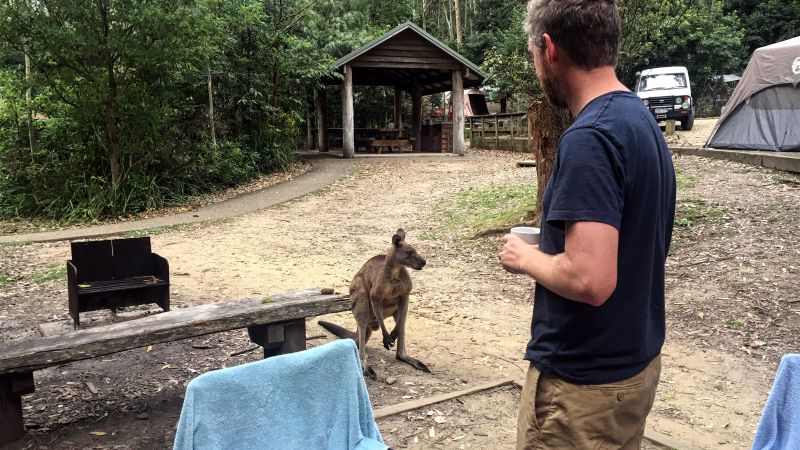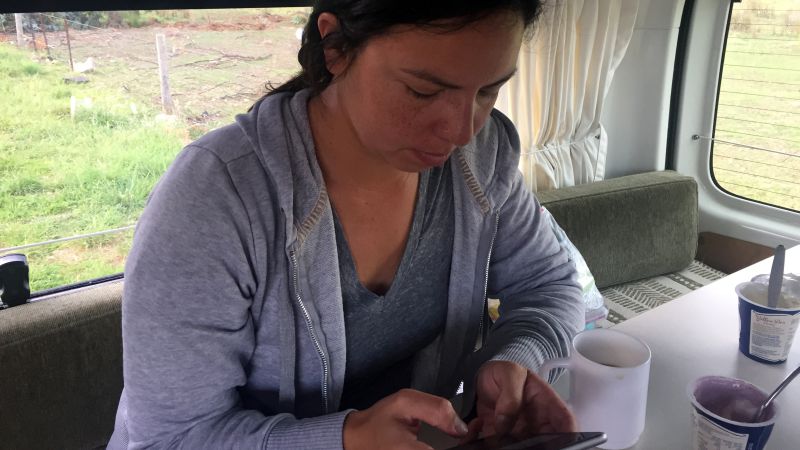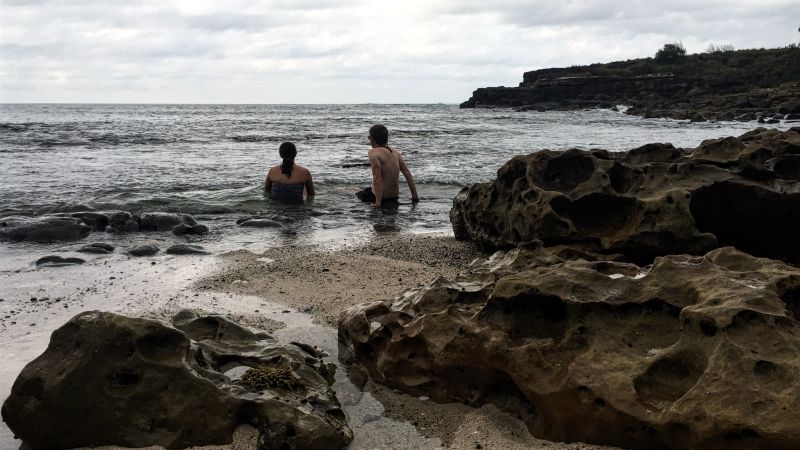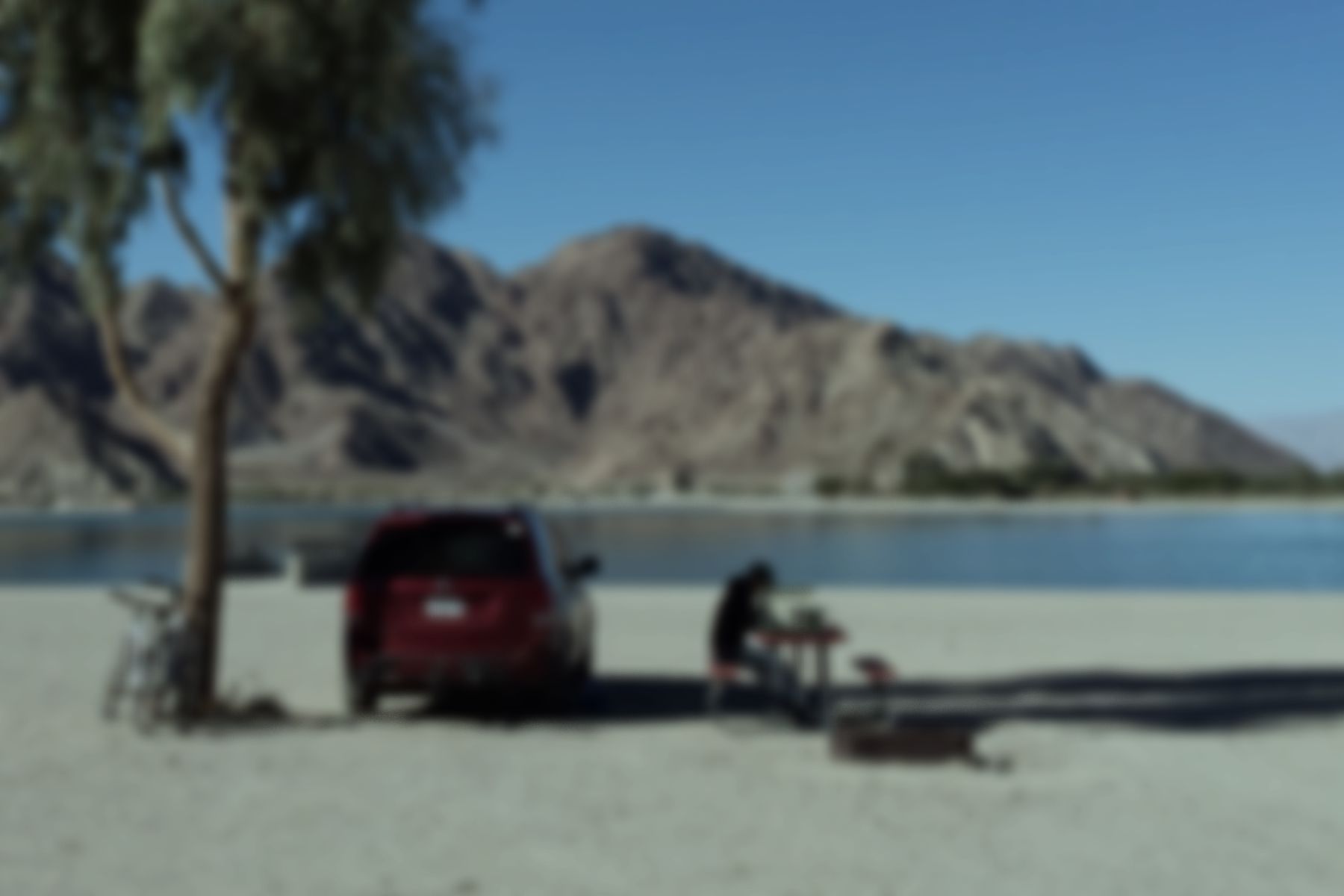Many of you have asked: How do you handle living so differently from other people? Is it hard?
The short answer is no. It was difficult when we first got started though.
Before we quit our jobs to take a traveling sabbatical, I (Tamara) had to pay a therapist to tell me I was not a bad person for wanting something different out of life. But once we stepped onto the road less traveled, it got easier.
We’ve written about the disconnect we sometimes feel with our peers. Now, we’d like to discuss the broader disconnect people who take the road less traveled can feel — and how we’ve learned to manage it.
Nerd Alert! We’ve included a side trip to Nerdland near the end of this post if you want to dig into the brain science behind why unconventional lifestyles make some people initially uncomfortable.
1. Emphasize common ground
It’s easy to point out what’s different about the van-dwelling lifestyle. We live in a space that’s less than 100 sq. ft. We don’t watch TV. We don’t think about commutes, school districts, or new gadgets. The divide can feel like a chasm.
But whether we’re talking with an old friend or a stranger at a cafe, there’s always common ground: current events/issues, fond travel memories, mutual hobbies. We all struggle to prepare convenient-yet-healthy meals. We all work on projects that hit bumps in the road. We all have dreams and goals to work toward. If you focus on talking about those things, it’s not hard to connect.

We love our morning coffee, too! Wait, this is a terrible example of emphasizing common ground.
2. Surround yourself with supportive people
We stay closest to people who are supportive of our lifestyle and goals. That doesn’t mean they live in a van. What it means is we don’t spend time with people who say, “You’ll see some day that you’re making a big mistake,” or, “What you’re doing is wrong.” Life’s too short to waste time with narrow-minded Negative Nancys.
However, supportive people should still challenge you. There’s a difference between someone who says, “I think your lifestyle is irresponsible,” and someone who says, “How are you balancing your desire to have a small environmental footprint with the fact that you have to drive long distances when you travel?” Those are supportive people who will also help you improve.
Our mastermind group and a plug for our friend Alyssa
One of the ways we surround ourselves with supportive people is in a mastermind group, started by our friend Josh. The members aren’t van-dwellers, but they’re also building portfolio careers with an entrepreneurial bent. We know each others’ goals, share advice, and keep each other accountable.
 Alyssa, one member of the group, also took the road less traveled. After volunteering in Budapest, Hungary during an alternative spring break, she yearned to go back and learn more about the Jewish community that thrives there despite past (and some present) anti-Semitism. She crowd-sourced $12,000, quit her job, and spent eight months in Budapest interviewing people. The culmination of the effort is her recently published book, Somehow I Am Different.
Alyssa, one member of the group, also took the road less traveled. After volunteering in Budapest, Hungary during an alternative spring break, she yearned to go back and learn more about the Jewish community that thrives there despite past (and some present) anti-Semitism. She crowd-sourced $12,000, quit her job, and spent eight months in Budapest interviewing people. The culmination of the effort is her recently published book, Somehow I Am Different.
Throughout her life, she says, she has learned to say, “thanks, but no thanks” to the endless stream of societal expectations: how to look, how to behave, and what to believe. She’s the kind of person we’re proud to surround ourselves with! Please check out her book when you have a chance.
3. Remember that creating economic value makes everything more acceptable
We’ve noticed, particularly in the U.S., that all skepticism about our lifestyle fades away when people hear that we’re able to work while we travel. Perhaps it’s our workaholic, Puritan-influenced culture. Perhaps it’s about a sense of fairness. Perhaps it immediately negates the trust-fund assumption. So we always qualify everything with “while working.”
We travel full time…while working.
We decided to come to Australia for six weeks…while working.
We’ve been on the road since 2013…while working.
4. Be honest about the challenges and trade-offs
Nobody likes a braggart. Even though van-dwelling is meant to cut out much of modern-day life’s hassles, it’s not without challenges either. We try to be honest about problems we face, like staying warm in winter and annoying campground neighbors. Not only does it show we’re real people, but it gets other people involved in problem-solving with us.

Work-related emails sometimes interrupt our relaxing mornings, too
5. Don’t look to others for approval
This is the simplest answer to the question we asked at the beginning of this post. Living differently from other people isn’t hard is because we don’t care if other people approve anymore. Once you learn to unhook yourself from outside approval, everything is easier.
Of course there are limitations to that statement. We want people to approve just enough that they won’t actively try to prevent us from being van-dwellers. We don’t want to dissuade anyone from being our friends or doing business with us. But in the end, we’re the ones who have to live our lives and we’d rather follow our own compass.
If you’re thinking about van-dwelling — or doing anything that goes against the grain — we hope these lessons help you. It’s an adjustment at first, but when you wake up to the sunrise overlooking the ocean you’ll wonder what the heck you were worried about in the first place.
 A post-hike cool down at Snake Bay in Murramarang National Park reminds us it’s all worth it
A post-hike cool down at Snake Bay in Murramarang National Park reminds us it’s all worth it
Quick side trip to Nerdland: blame the brain
If someone you know is uncomfortable with the idea of your lifestyle, don’t judge them too harshly. As humans, we are constantly categorizing things so we can make quick judgments. It’s one of the incredible things our brain does that allows us to function in a complex world.
Can you imagine what it would be like to see a curved, yellow fruit and not automatically know it’s a banana? To have to really think about how to open it, whether it’s safe to eat, and whether you like how they taste? And then to have to think that much about everything in your life? It would make life exhausting and impossible. It’s why people can experience stress and culture shock when traveling.
Categorization is the antidote. Categorization lets our brain take a shortcut because keys always open doors, bricks are always hard, and shoes are always for feet. Categorization helps us survive. Snakes and bears mean danger. Lack of eye contact is untrustworthy. Hacking coughs should be avoided. Categorization also makes us unfairly prejudiced: e.g., women are weak, Muslims are violent, or poor people are lazy. (We do NOT believe any of these things!)
What does this have to do with people with unconventional lifestyles? People can’t immediately categorize you. Ambiguity makes some people really uncomfortable.
Is what you’re doing good or bad? Are you a threat to their lifestyle or livelihood? How will your relationship be impacted? Some people will create a new category for you; some people will put you in the “strange and untrustworthy” category. You can blame the brain.

Best blog yet! The writing is great. Loved the way you tied the different topics together to make one very interesting, esoteric post. Bravo! Keep them coming.
Gracias, Carlos 🙂